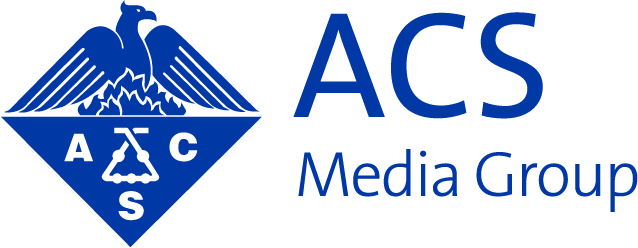As a marketer, your goal is to get your product or service in front of your target audience. And as with most marketing activities these days, technology can help you easily achieve that goal. This is really the simple theory behind programmatic advertising.
But what exactly is programmatic advertising, and why are businesses doing it? Is it really the solution many believe it is? In this article, we answer those questions and discuss why programmatic advertising isn’t always the best choice for science marketers.
What Is Programmatic Advertising?

Programmatic advertising (or programmatic ad buying) entails using software programs, over people, to purchase digital advertising. It is often compared to real-time bidding (RTB), except that a computer interacts with the auction instead of a human. More specifically, the computer simplifies and automates traditional advertising methods, like display ads.
With programmatic advertising, you don’t need to wait for a salesperson to tell you how many impressions are available, and theoretically, you increase your odds of getting your ad served when and where you want it. It’s also easier to buy guaranteed ad impressions from specific sites well in advance (a.k.a. programmatic direct). In some cases, advertising agencies may even offer programmatic advertising options as a service for businesses to utilize, supposedly taking the guesswork out of the process for you.

Why Do Businesses Use Programmatic Advertising?
In a word, efficiency. Programmatic advertising solutions seek to streamline the ad-buying process by removing the human element whenever possible. Businesses believe that – compared to computers – ad buyers and salespeople are more expensive (in the long term) and less efficient.
Machines don’t take days off, for one. They don’t need to sleep. Best of all, machines are set to operate at all hours of the day so you can take advantage of off-hour-bidding.
But what’s the catch?
In most cases, programmatic advertising is made to sound like the silver bullet for your marketing woes. They promise that their advanced algorithms can analyze hundreds of data points in order to optimize each and every impression in a campaign and that their software evaluates billions of impressions across millions of sites to find the right audience and the right fit for your product or service.
While all of this may be true in theory, the processes—and end results—are a bit more complicated than that. For example, businesses often believe that an agency offering a programmatic platform will set up their marketing campaigns and optimize the targeting. But in reality, sometimes the agency doesn’t have all the publishers that you, the client, want to target in your programmatic network.
Why does this matter?
Because you could end up wasting money by not reaching the audience you thought you would, – not to mention time and energy if you need to start an about-face. Especially in our niche industry, knowing exactly who you’re reaching with your marketing efforts is vital to the success of your strategy and your business—as is understanding the pros and cons of programmatic advertising.

What Are the Downsides of Programmatic Advertising for Science Marketers?
One of the most significant downsides of programmatic advertising is that it is still in its infancy as far as marketing mediums go. That means there are some bugs that need to be worked out. Many senior ad buyers express concerns about:
- Control as to where, and on what sites, the programmatic advertising appears, which ties in to brand safety, (your ads popping up next to extremist or inappropriate content)
- Inconsistent metrics for measuring the performance of programmatic advertising across different media and platforms
- Transparency and trust in programmatic advertising agencies
- Lack of ad visibility on third-party platforms (where on the page the ad is located)
- Ad fraud (ads produced by bots)
- Viewability (impressions that can actually be seen by users)
While programmatic advertising can be good for retargeting and reaching audiences at scale, it might not be the best method for your overall marketing strategy. For starters, a technical field requires technical expertise. A computer is not going to know the difference between keywords. For example, will a computer be able to distinguish between “MS” for mass spectrometry and “MS” for multiple sclerosis?
To further complicate matters, businesses must now take GDPR (General Data Protection Regulation) guidelines into consideration. This new regulation extends personal data protection and includes increased fines and stricter opt-in consent requirements. While the regulation applies specifically to European Union countries, U.S. businesses with customers in those countries are also affected. And similar regulation in the U.S. may actually be coming. As a result, you must be more aware of privacy laws than ever before.
This could impact your programmatic advertising campaign, but why? It comes down to consent. As one article put it: “Research by PageFair and several European organizations indicates that the percentage of users who would grant consent to requests such as ‘allowing third parties to track your online behavior for the targeting of relevant ads’ is a mere 5-20%. And with the GDPR, no opt-in means no dice.”
Unfortunately, GDPR laws and differences in keywords are not the only complications that businesses may run into with programmatic advertising. Here at ACS Media Group, we recently had a client tell us that a campaign that had run programmatically fell short. Their theory was that the ads weren’t hitting the right people at the right part of the buying journey. And when you’re selling million dollar lab equipment – that matters.
This matches with what we know of our own properties. When someone visits a website to check in on the latest breaking news or find stories related to their field, they’ll spend—on average—two minutes during a given session on C&EN online. The best click through rates we see in this situation are ads that are attention-grabbing or engaging, like a quiz or contest that fits why they’re on the site in the first place.
In contrast, academic platforms have visitors spending on average four to five minutes per session because they are researching. They’re spending significant time on the site because the information they’ve found directly impacts what they’re doing in their own lab. As a result, advertising on this channel should be incredibly tailored to the experience. Your product should be related to their field, front and center, specifically targeted to keywords mapped to related journals. Ads that showcase how a product or service can actually help fuel the research the visitor is interested in are our best performing.
This is the challenge with programmatic advertising for science marketers. In such a niche industry, these differences in audience behavior are obvious to our marketing and sales team, but not so obvious to a computer that is focused purely on bidding.
In short, talking to a publisher and sales team can give you valuable insight into what works for their audience—from what new journals are being launched to target your ads against, to understanding how a scientific audience buys. These professionals can give your campaign an edge over a programmatic ad campaign by taking into consideration factors that even the most advanced technology can’t.


















